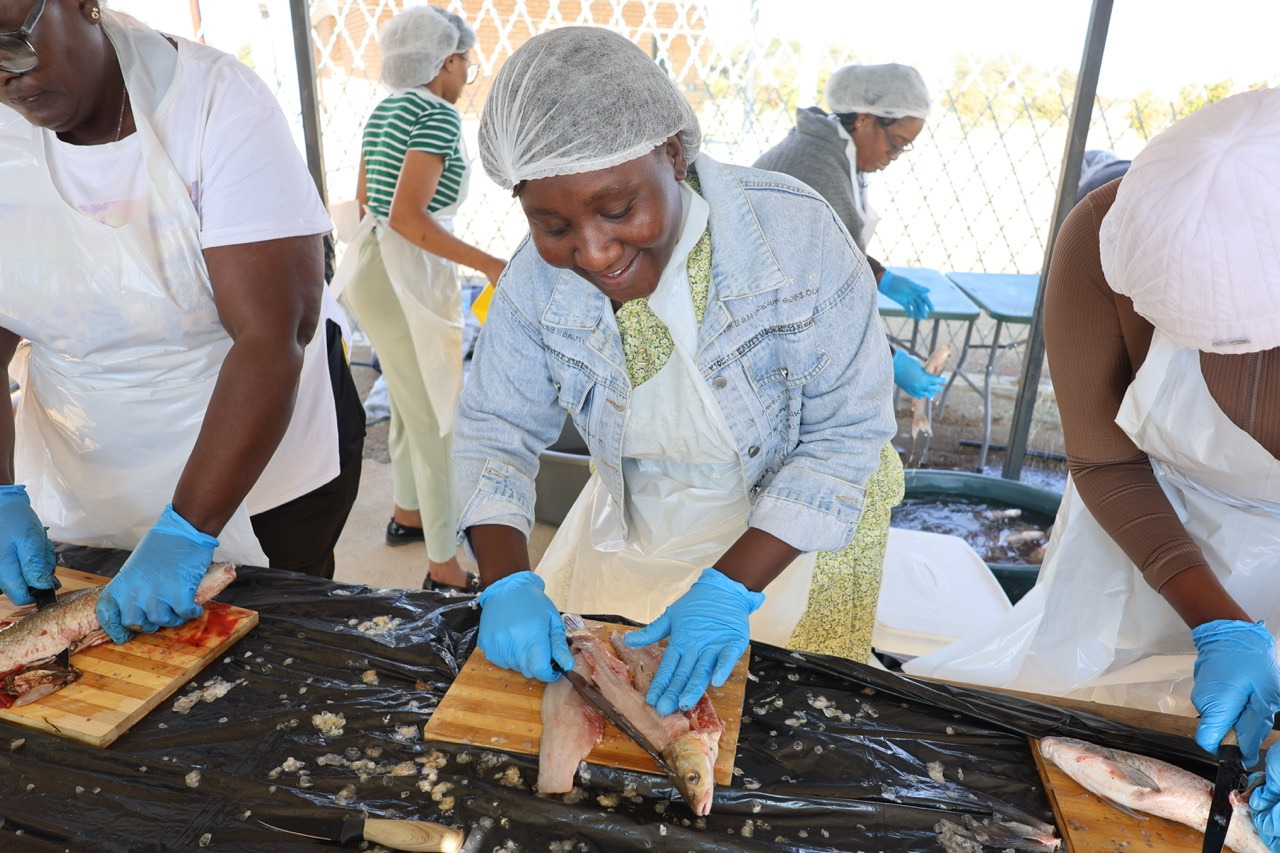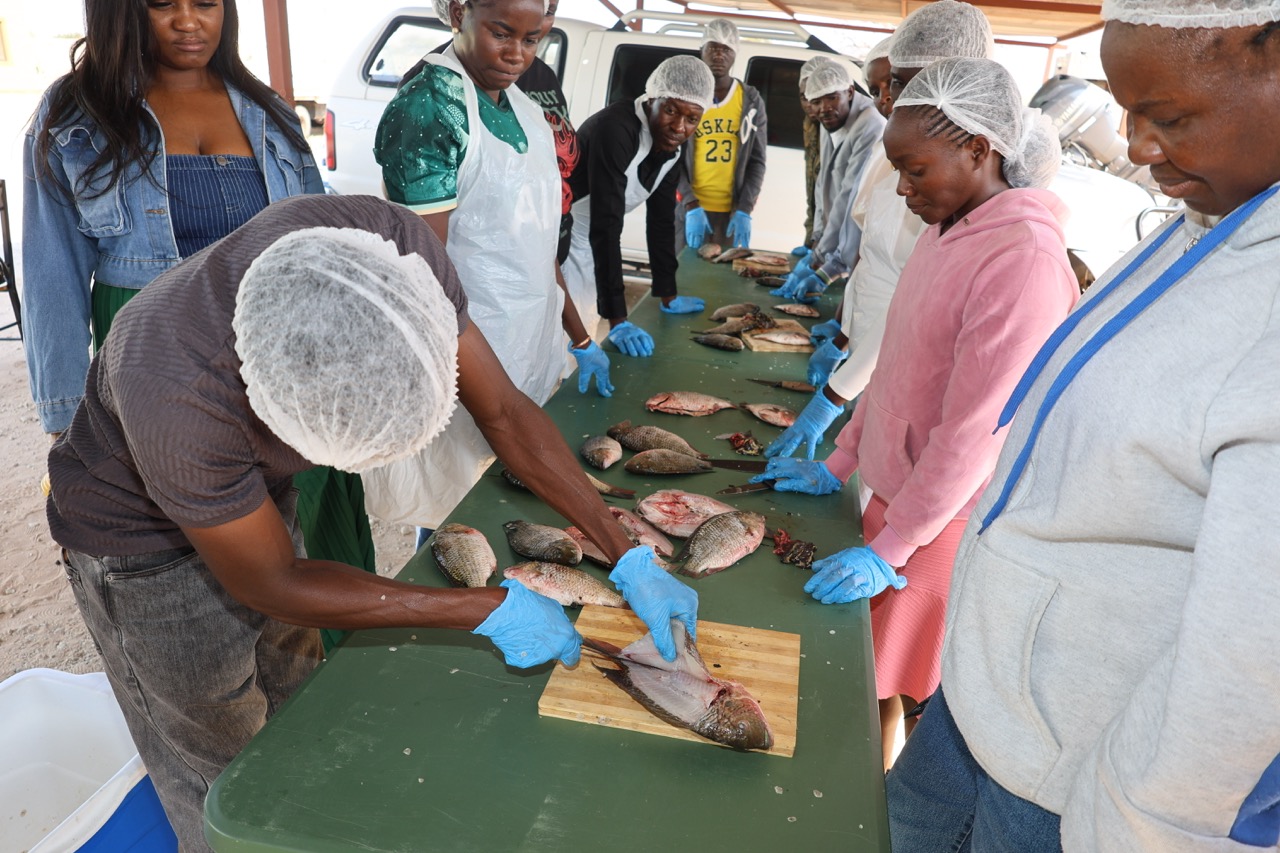FAO empowers small-scale fishers and traders through climate-smart post-harvest trainings in Namibia

In support of Namibia’s efforts to build resilient, inclusive, and sustainable agri-food systems, FAO has strengthened its collaboration with small-scale fisheries (SSF) communities through two Training of Trainers (ToT) and two supervised training workshops held in Keetmanshoop and Rundu between June and August 2025. These capacity building activities were developed under the Implementing the Small-Scale Fisheries Guidelines for gender-equitable and climate-resilient food systems and livelihoods – Phase 2 project. The purpose of the project in Namibia was to empower fishers, traders, processors and their organisations/associations by equipping them with knowledge, technical and leadership skills required to improve representation and participation, particularly for women and youth, while supporting the implementation of the National Plan of Action for Small-Scale Fisheries in the country (2022–2026).
The ToT workshops, held from 30 June to 10 July 2025, provided training on climate-smart post-harvest practices, value addition, entrepreneurship, and financial management to 27 participants (fish traders, fishers, & members of SSF organisations/associations): 55 percent women and 63 percent youthThe training focused on practical demonstrations in fish preservation and processing, smoking, chilling, vacuum packaging, and freezing. These methods aim to reduce post-harvest losses, then enhance product quality and increase access to markets.

These training sessions allowed earlier trainees, who were now community trainers, to deliver training to new participants under the mentorship of FAO technical staff and national consultants. In Keetmanshoop, 15 participants—including 12 new trainees—received mentoring from experienced trainers Saiya Ribeiro, Shiwavanhu Paulus, and Anria Brandt. These trainers had themselves been trained during FAO’s first round of capacity-development sessions. In Rundu, 12 participants (nine of them new) were trained by Naka Wensel, Micheal Hausiku, and Elizabeth Shigwedga, who in turn received guidance from Hiskia Asino and Tauno Shikomba. The supervised workshops not only reinforced knowledge but also demonstrated effective peer-to-peer learning, building trust and connections, fostering ownership and ensuring that the skills acquired will be sustained within the communities.
The initiative received strong support from regional authorities. In Keetmanshoop, Mr. Ralph Sachika, Chief Regional Officer of the //Karas Regional Council, highlighted the significance of the training for the local fisheries sector. In Rundu, Mr. Herculano Mwenyo, Deputy Director of the Kavango East Regional Council, reiterated similar thoughts, emphasising the importance of continued collaboration to improve livelihoods for the vulnerable.
Participants also shared reflections on the training’s practical benefits. Elizabeth Shigwedha, a 29-year-old fisherwoman and trader, explained that preservation techniques help reduce spoilage and income losses, while Calvin Maswahu, a 50-year-old fisherman, highlighted the importance of value addition through vacuum packaging as both a marketing strategy and a way to extend product shelf life. While challenges such as limited storage, transport, and cooling infrastructure remain, participants expressed confidence in applying the new techniques to strengthen their businesses and communities.
Looking forward, FAO Namibia will publish training manuals and handouts and support community trainers to roll out local-level trainings in the future. Continued collaboration with the Ministry of Agriculture, Water and Land Reform (MAFWLR) and regional councils across Namibia will remain key in scaling up sustainable post-harvest practices. By combining technical training with supervised mentorship, FAO is empowering SSF communities, particularly women and youth to reduce losses, add value, and build inclusive and resilient fisheries value chains that contribute to food security, poverty reduction, and gender equality in Namibia.
Learn more:
• SSF Guidelines website
• Implementing the Small-Scale Fisheries Guidelines for gender-equitable and climate-resilient food systems and livelihoods project
• Namibia webpage
